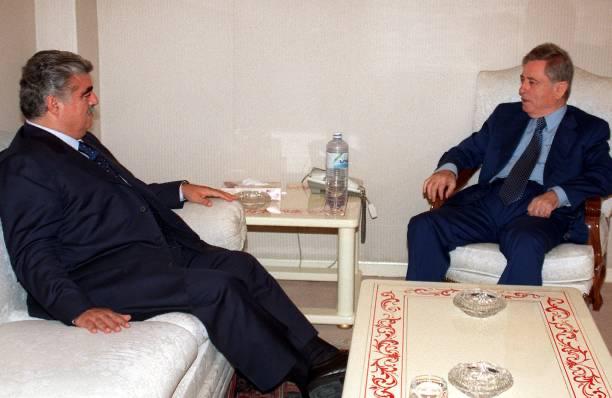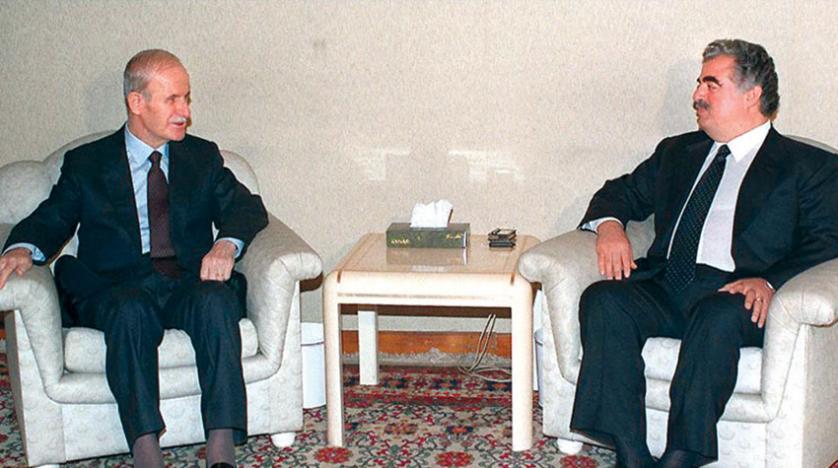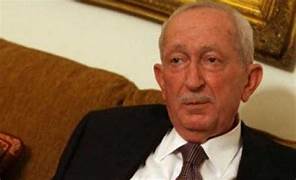Prime Minister Hariri made a brief visit to Damascus yesterday, where he met with Syrian Vice President Abdel Halim Khaddam and several Syrian officials. During the visit, Prime Minister Hariri had lunch at Khaddam’s table in the presence of Syrian Prime Minister Mahmoud Al-Zu’bi and Foreign Minister Farouk Al-Sharaa.
Sources close to Prime Minister Hariri mentioned that the discussions delved into the detailed formation of the security committee, outstanding issues, and the ongoing investigations. They also pointed out that the talks addressed communications regarding the establishment of the advisory group. The discussions covered the Lebanese situation, especially concerning the upcoming parliamentary elections.
The visit and its discussions were described by sources as part of coordination and consultation. Although sufficient information about the results of Hariri’s visit to Damascus has not been leaked, some sources linked it to the government’s intention to finalize an electoral law in the next two weeks. This is in preparation for presenting it to the parliament after convening an extraordinary session starting from June 1st until the end of July.
Yesterday evening, Prime Minister Hariri returned from Damascus, and on his way back, he met with Minister Mohsen Daloul at the Stora Park Hotel.
It is worth noting that several ministers, deputies, and political figures have met with Khaddam in recent days, discussing election-related matters. The impressions gathered from these meetings indicate a consensus that the elections will take place on time, but the electoral division has not been settled yet.
In any case, the efforts to finalize the electoral law in the first half of the coming month are intensifying. This is aimed at providing candidates with an opportunity to manage their electoral campaigns and settle their situations regarding the formation of electoral lists, considering the anticipated electoral division. The final picture of this division has not yet emerged, with the Mount Lebanon district being the most prominent issue. Candidates and political forces in other provinces have started slow election campaigns based on the assumption that the adopted division will be the provinces.



